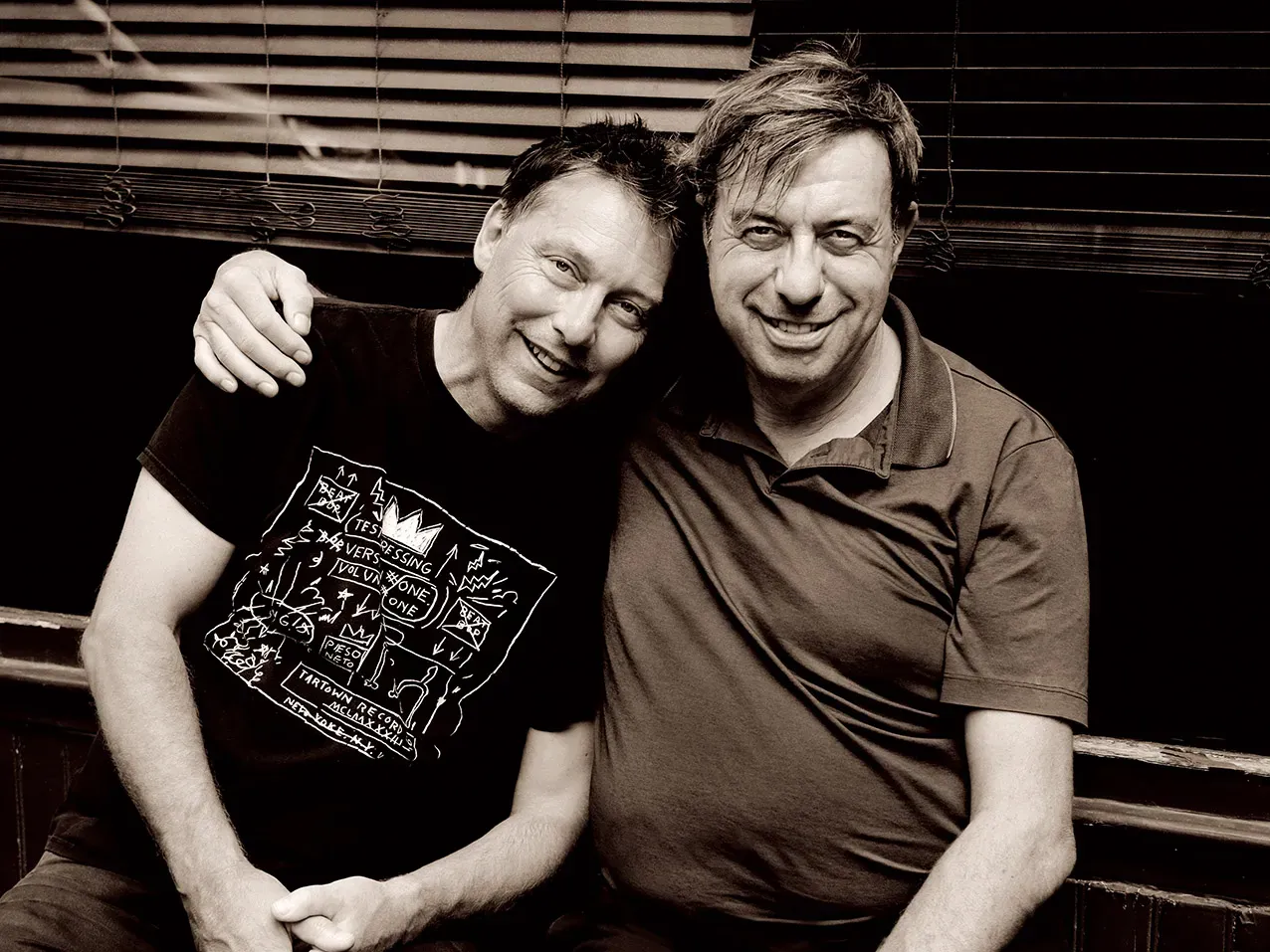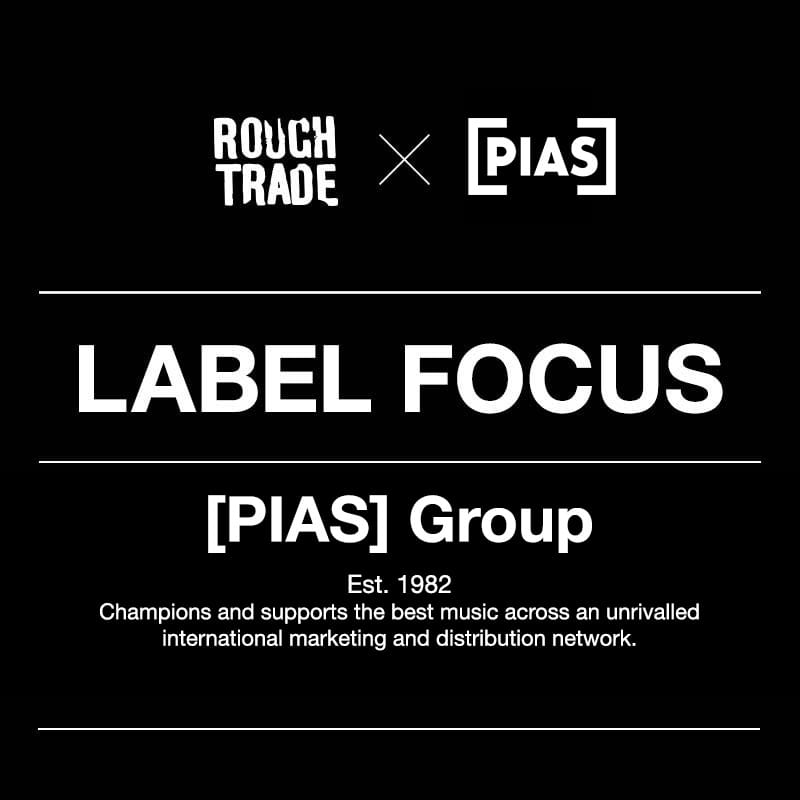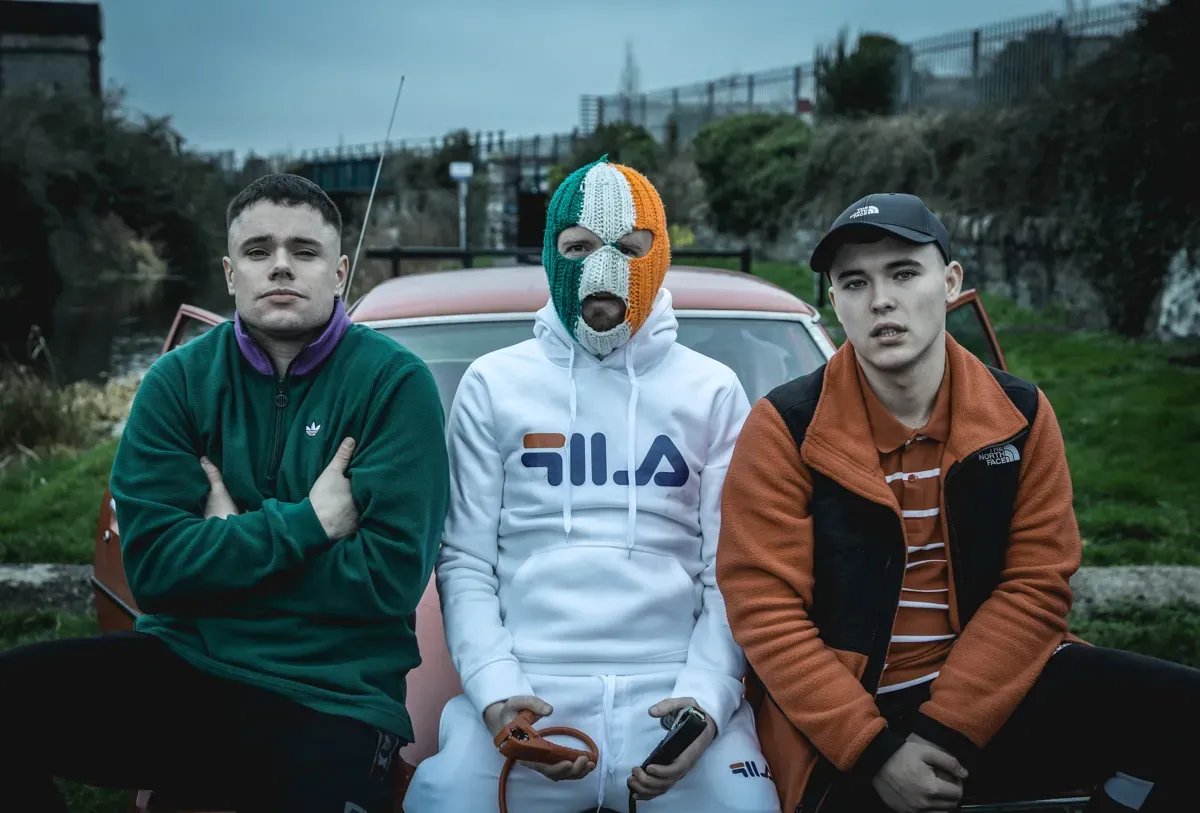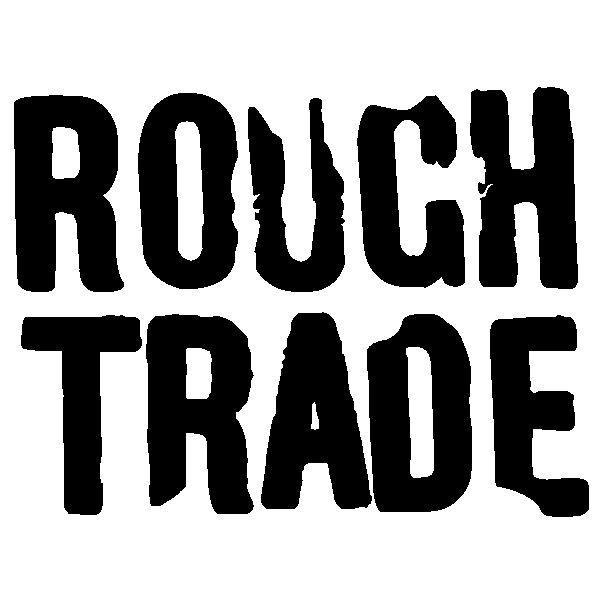[PIAS] has a longstanding history of serving the music community.
Michel and Kenny met circa September 1981 at Michel's record store then called "Casablanca Moon", exclusively selling records from independent labels and they quickly became friends.

In June 1982 the record store closed down and they made plans to start an import company named "Play It Again Sam". Play It Again Sam started importing from the UK in October 1982 and were based in the basement of Kenny's parents' house in Brussels, Belgium. Michel and Kenny were then respectively 21 and 19 years old. The company was incorporated in March 1983 with a starting capital of €5000 and the strategy rapidly became a "distributor" rather than an importer / wholesaler; that meant offering a full range of services to labels, such as promotion and marketing. The activities were then extended to production through the creation of their own label in 1984.
Now headquartered in London and Brussels with 16 offices around the world and 300 employees, [PIAS] champions and supports the best music across an unrivaled international marketing and distribution network.

[PIAS] Group partners with many labels including Heavenly, Transgressive, and more! Browse our curated collection now.
From Nick Cave and John Grant to Arlo Parks, Nation of Language and Porij, [PIAS] continues to champion artists of all genres. We go behind the scenes with Irish trio Kneecap to delve deeper into what that means to the artist.

[PIAS] Group consists of an iconic community of indie labels - what appealed to you initially joining Heavenly?
They all seem to have a good word about them and they have a good track record with new artists and they've been very good to us. We're very friendly with them all now. We knew that we didn't want to start with a major label, obviously, and it was a massive part of Kneecap that we wanted to be in control of, you know, the music and what our output is. We knew that Heavenly was the perfect vehicle for it.
How has being part of your [PIAS] Label Group—particularly Heavenly—contributed to your growth as artists? Can you share a specific moment that impacted you?
They're very good at getting us nice pints wherever we're at, they're good at paying for it. They are very generous with their lunch money.
Your music is steeped in Irish identity. How does your cultural background inform the themes in your work?
There's a massive history in Ireland of colonialism and we're massively steeped in the Irish language as well. The Irish language was almost pushed to extinction by the Brits who were here for 800 years and tried to get rid of the language, but there's been a massive language revival over the last 30-40 years with the introduction of Irish language schools. We're at the pinnacle of that now where we've been standing on the shoulders of the people who came before us. Now you've got this opportunity to go to school there in Irish and to speak in the social setting, whereas it was always just a classroom language before this and there was a chain of three generations that didn't speak Irish for the last 100 years. But before that, Ireland always spoke Irish, you know, so that's a massive theme in the music as well. We come from a working class area as well and we offer working class solidarity. So there's an image of Ireland where there's sectarianism and lots of divides because of religious linesut I think now the generation coming through are able to see past all that and even one day, the Irish language would have been seen as a divisive thing, but now both communities are speaking it and it's not seen as such a threat anymore.
Piggybacking off the last question….Kneecap is known for incorporating storytelling in your music. How do you select the stories you want to share, and what themes resonate most with you?
Storytelling is such a massive part of Irish culture so we obviously knew that if we had a story to tell, that we thought the best vehicle for it was to do hip hop, because hip hop is obviously steeped in storytelling as well. So it just was a natural decision to tell our story and just sort of represent this like subculture of young Irish speakers that live in cities, like in the urban setting rather than rural Ireland and it was just natural for us to hip hop. We like to talk about youth culture and the Irish language hadn't really sort of touched on it as it's very like traditional. There was this image of the Irish language, it's very innocent and not really involved with cocaine, for example. But 100 years ago, there would have been poets writing really filthy, dirty poetry and after the influence that the the church had on the language, when they started taking over societally, they kind of whitewashed it all and made it into a nice kind of clean language. You have this kind of idealized version of Ireland and the people see through kind of rose tinted glasses, but Irish can be very, very filthy and it's very poetically filthy as well, which is even more beautiful.
Kneecap blends various musical styles. How do you navigate boundaries in your music, and what drives you to experiment?
I don't think we think about boundaries or whatever too often. I feel like we get sort of like pigeon-holed into this description that we are a political band and every decision we make is all based on politics and stuff. Obviously we have beliefs that will come out in our music or in our statements but at the end of the day, we're just a group making music and trying to enjoy ourselves. We try not to think deeply about every decision. If you listen to the new album Fine Art, you can tell there's no real boundaries. As a genre, there's punk aspects, there's dance music, there's hip hop or boom bap, there's fucking traditional Irish themes running through it all as well. So we don't tie ourselves down there with the one genre or one topic, it kind of limits your scope then for making music.
What artist has influenced your music or inspired you? What aspects of their work resonate with you?
The biggest one was The Rubberbandits from Limerick in Ireland. For anyone that doesn't know they wore plastic bags on their head. The hip hop scene in Ireland before The Rubberbandits was all like fellas emulating American themes and talking about fucking gang banging. So The Rubberbandits came along, and they were the first ones to, like, talk about like, you know, like Irish themes. And that didn't have to be like that Hip hop didn't have to be this big, like, braggadocious thing all the time that they could talk about, you know, that having a horse is superior to a car.
Is there an artist that you would love to collaborate with, and creative vision or project would you hope to explore together? Perhaps someone in the [PIAS] Group or Heavenly family?
Eminem.
We had Gemma Dunleavey on support when we toured in England and she's fucking fantastic.
Your performances resonate with such high energy and movement. How do you approach connecting with your audiences during live shows?
We've got the the set list kind of set out in a way that builds slowly and it brings the audience along to a crescendo at the end. So every song has its own energy and it's able to like pull people along. It just builds and builds and builds till everybody's fucking going absolutely nuts. There's mosh pits and a lot of people on shoulders. There's a lot of sweaty, sweaty boys and girls with tops off and full of illegal substances.
Looking ahead, what new themes or sounds are you excited to explore in your upcoming projects?
We're obviously working with that at the minute. We've already started the second album and we're going to probably do a third. See, to be honest, it depends on the day, what the theme is for a song.
Lastly, some advice for emerging artists: What would you tell artists looking to find their voice and navigate the music industry today?
Buy our merch and don't go partying with Diddy.

![Label Focus: [PIAS] Group](/content/images/size/w2000/2024/11/Untitled-2.jpg)